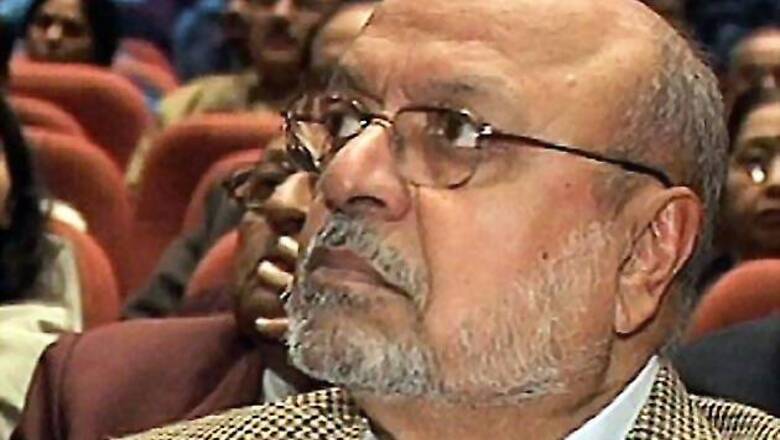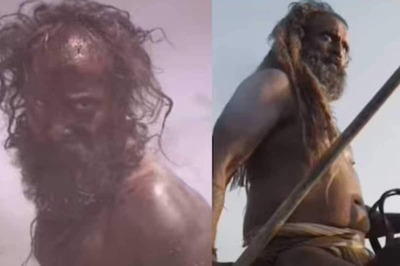
views
Hyderabad: It is how one contextualises a thing that makes the difference between a good film and a bad film, believes Shyam Benegal, the director of many good films.
He feels much of the communication today is not genuine and honest.
"Look at television. Everything is Breaking News and you will find much of what comes is totally out of context. You get people's consent not necessarily because they actually consent, but you manufacture that consent from them without context. Filmmakers have been doing that forever and to me, that is the difference between a good film and a bad film," said the veteran filmmaker.
"If you are making a good film, your context has to be absolutely clear. You can't do that by cheating. If you don't contextualise a thing, then you are either manipulating your audience or you are just simply being a fool who doesn't know how to communicate," he said during an interaction with students of Annapurna International School of Film and Media, owned and run by the family of Telugu thespian Akkineni Nageswara Rao.
The maker of movies like "Ankur", "Nishant", "Manthan" and "Bhumika" said the ideas of social justice, the change and gender justice had always been important for him.
He recalled how Prime Minister Jawaharlal Nehru's words on various components of communication inspired him.
"Some of the components are like how do you contextualise. How do you put something in context? You will have to be precise and how do you do that comes only when you relate to something."
"When you are making a film you are contextualising what you wish to say with what exists in your experience. If you don't do that, there is certain amount of dishonesty involved and that certain amount of dishonesty can miscommunicate itself. I don't want my work to be misunderstood in any way whatsoever."
The 79-year-old described filmmaking as an adventure.
"You are embarking on creating a world. Why some films are interesting to watch because we are transported to that world and that world has nothing missing in it. I can even smell."
On actors like Naseeruddin Shah, Shabana Azmi, Smita Patil and Om Puri featuring in many of his initial films, Benegal said it was something like a repertory company. "Many of them later became huge actors and I lost them because I could not afford to pay them what they were getting at that time."
To another query, Benegal said he doesn't write for actors. "I write for the story. The actor has to fit into it. The actor can make that part his or her own."
The Dadasaheb Phalke awardee says a director, as the team leader has to recognise different contributions of the actors and understand how each actor works and uses his contribution accordingly.
"Filmmaking is such an exciting thing. Here I get an opportunity to actually play god. How many professions you get that an opportunity. When you make film, you are creating that world which anybody can partake of by just sitting there. But if you write, the person has to read that."
Benegal, who was born in Hyderabad, shared his experiences of his 35-year-old journey in Indian cinema. He advised the young filmmakers to be interested in the world around them, observe other people, listen to them and notice the shades of emotions that change in the conversation.
"Learn enough about society like who you are. India is such a diverse country that one lifetime is not enough. You have to learn. Every day is a learning day. Don't think you have learnt enough. I don't think that even for a second. For me tomorrow is the day I have to start from scratch. I am blessed because of that. It doesn't allow me to be complacent."

















Comments
0 comment